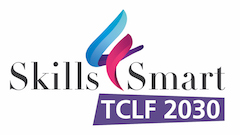What do these terms mean? Traceability is the capacity to track and trace a product to its origin, and Transparency is the level of public disclosure of the suppliers in a given value chain. They have become key concepts among apparel and footwear suppliers where value chains are highly complex, and the skills required in this are very specific.
Why do we need this? Today’s consumers have become increasingly demanding. Now more and more of them want to have the peace of mind that the pair of shoes or the jacket or the nice little skirt bought in the high street shop has been produced under sound social and environmental conditions, over and above the fact that they are of the expected quality. Nobody wants to be seen accomplice of child labour, cruelty to animals, environmental pollution, or deforestation that images and reports found on the internet and press convey from textile and leather supply chains of certain developing countries.
The TCLF sector in Europe is well aware of this!
EURATEX, COTANCE, and CEC have been involved in several initiatives addressing these matters together with the EU, OECD, and UNECE. They are related mainly to the intelligence that allows tracing back materials and components, and to the customisation of blockchains to fit the needs of the TCLF sector. The aim is to convey the relevant information on the product that links specific claims to a given component or its producer. The pair of shoes, the skirt, or the t-shirt carry in consequence certifications like a “product passport” that assure customers the fulfillment of product or production requirements.
However, as pointed out by Maria Teresa Pisani, from UNECE, guest speaker at the annual EURATEX convention that took place on the 9th of November in Antwerp, adequate development in traceability and transparency cannot be achieved without skilled workforce.
By sharing similar point of view and in relation to trends within the industry, our project partners has developed one specific curriculum and corresponding to it training material (in form of a MOOC) to meet the needs of the industry for a new qualified workforce, called Sustainability Technician. Participants who will successfully finalise the course will be knowledgeable on recent developments in the area of sustainability on European and international levels, as well as possess skills on life cycle environmental performance of TCLF products and understanding of sustainable technologies and materials.
Managing information regarding Traceability and Transparency in larger TCLF companies has become a full-time job. Nowadays, also smaller enterprises are investing in the right skills for satisfying these new value chain business requirements which creates the need for new skills and knowledge regardless of the size of a company. Tomorrow no company operating in the textile, clothing, leather, and footwear sector will be able to do without such skilled personnel.
Author: Gustavo Gonzalez-Quijano (COTANCE)
Further reading:
More materials about Sustainability Technician MOOC developed under the Skills4Smart TCLF project are available here: https://s4tclfblueprint.eu/project/profiles/
The OECD initiative “Due Diligence in Garment & Footwear sector”, available here: https://www.oecd.org/industry/inv/mne/responsible-supply-chains-textile-garment-sector.htm
The EU sponsored UNECE initiative on “Transparency & Traceability in the Apparel and Footwear, available here: https://unece.org/trade/traceability-sustainable-garment-and-footwear


